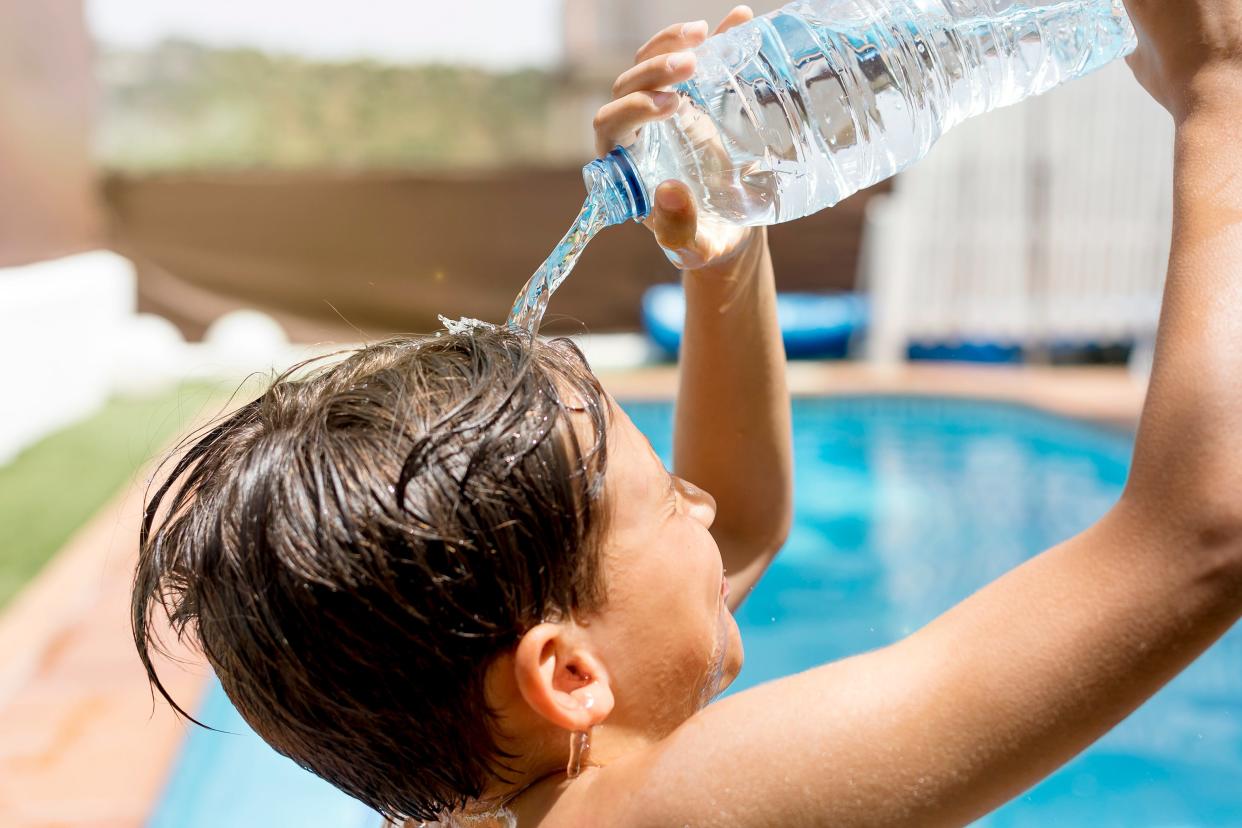Key advice for staying hydrated as warmer weather arrives | Mark Mahoney

As the temperature increases and we turn to more vigorous outdoor activities, the importance of remaining sufficiently hydrated is an important concern. We’ve all probably heard of individuals in the sports-related area having some issues with dehydration — sometimes with fatal outcomes.
A summary of some of some of the major signs/symptoms of insufficient hydration is presented in today’s column with additional resource links for information to include education for parents of children. Recommendations on how to approach a resolution of the state of not being adequately hydrated is also provided. Thanks to the online Health forum for much of today’s content.
An introduction
Dehydration occurs when your body doesn't have the amount of water it needs to function efficiently. You may become dehydrated after losing too much water or not adequately replacing lost water. Sweating, having diarrhea, and vomiting are examples of situations that can lead to dehydration
When dehydrated, you may feel thirsty, have a dry mouth, and be fatigued. As dehydration progresses, the symptoms become more severe. Being able to recognize the symptoms of dehydration is key so that you know if you or a loved one is in need of fluid.

What are some common symptoms of dehydration?
While dehydration is uncommon among adults without any underlying health condition and who have access to water, anyone can become dehydrated. Dehydration is more likely among older adults, people who work or exercise in the heat, and those who have conditions or take medications that cause more sweat or urination.
When you are dehydrated, the symptoms you experience reflect how severe your dehydration is. The most common symptoms of dehydration:• Thirst• Fatigue• Dry lips and skin• Decreased urine output• Dark-colored urine• Headache• Muscle cramps• Lightheadedness, dizziness, or fainting• Low blood pressure upon standing• Palpitations
Mild to moderate symptoms
Signs you are mildly to moderately dehydrated include.• Thirst• Fatigue• Dry mouth or tongue• Decreased urine output or darker yellow urine• Dry skin• Headache• Lightheadedness, dizziness, or fainting• Inability to focus• Muscle weakness or cramps• Increased heart rate• Quickened breathing
Research has shown that many people don't recognize some of the less common symptoms, such as the inability to focus or muscle weakness, as signs of dehydration. As a result, people may not act on the symptoms by increasing their fluid intake.
Fast breathing is another symptom people do not usually associate with dehydration. Not only is it a sign of dehydration, but it can also worsen dehydration since respiration is one way your body loses water.
Recognizing all symptoms of dehydration—particularly if you are at increased risk of dehydration—can prevent your dehydration from becoming severe. As soon as you recognize you are dehydrated, you can drink fluids, which is often all that's needed to treat dehydration that isn't severe.
Severe dehydration symptoms
Symptoms of severe dehydration may include:• Parched mouth• Dry, cracked lips• Low blood pressure• Lethargy (lack of energy & enthusiasm)• Reduced alertness• Lack of urination or urine that is very dark yellow or amber in color• Very dry skin that doesn't spring back quickly when pinched up• Sunken eyes• Confusion or loss of consciousness
One of the other signs of severe dehydration is slow capillary refill. When you press the tips of the fingers or toes and you are severely dehydrated, the color is slow to return. This slowed return to color could indicate decreased blood flow to the extremities and could be a sign of shock (when there is not enough blood flow in the body).
If your internal organs are not receiving adequate blood flow, you may develop complications like liver injuries, kidney failure, or electrolyte imbalances.
If you or a loved one is experiencing any sign or symptom of severe dehydration, you should seek medical help. Someone who is severely dehydrated may need intravenous fluids at a hospital to get hydrated and prevent serious complications.
Without treatment, severe dehydration can lead to permanent brain damage, seizure, or death.
The takeaway
Mild dehydration can happen to anyone at any age. Thirst, dry mouth, and fatigue are some of the most common symptoms of dehydration and may indicate that you need to drink more fluids. The symptoms you experience depend on whether your dehydration is mild, moderate, or severe.
If mild-to-moderate dehydration symptoms such as decreased urine output and dry skin are not recognized, the condition can progress and cause worsened symptoms such as no urine output and confusion. Most times, dehydration is mild and is reversed at home.
When severe dehydration does occur, it's important to seek medical help so you can get the treatment you need and prevent any serious complications.
As we move into National Nutrition Month as well as increasingly warm weather in the Big Bend area, the subject of dehydration is an important aspect of our overall health status. Be aware of the signs and symptoms of dehydration and remember to focus on remaining adequately hydrated. Staying awareness of signs and symptoms and being proactive to address hydration issues can be a life-saver.
Additional resources
A good summary of relevant issues for dehydration is available through the Mayo Clinic at mayoclinic.org
Educational content for parental concerns and children’s dehydration in both English and Spanish can be at found at Nemours Children’s Health: kidshealth.org (English) kidshealth.org(Spanish).

Mark A. Mahoney, Ph.D. has been a Registered Dietitian/Nutritionist for over 35 years and completed graduate studies in Nutrition & Public Health at Columbia University. He can be reached at marqos69@hotmail.com.
This article originally appeared on Tallahassee Democrat: Key advice for staying hydrated as warmer weather arrives

